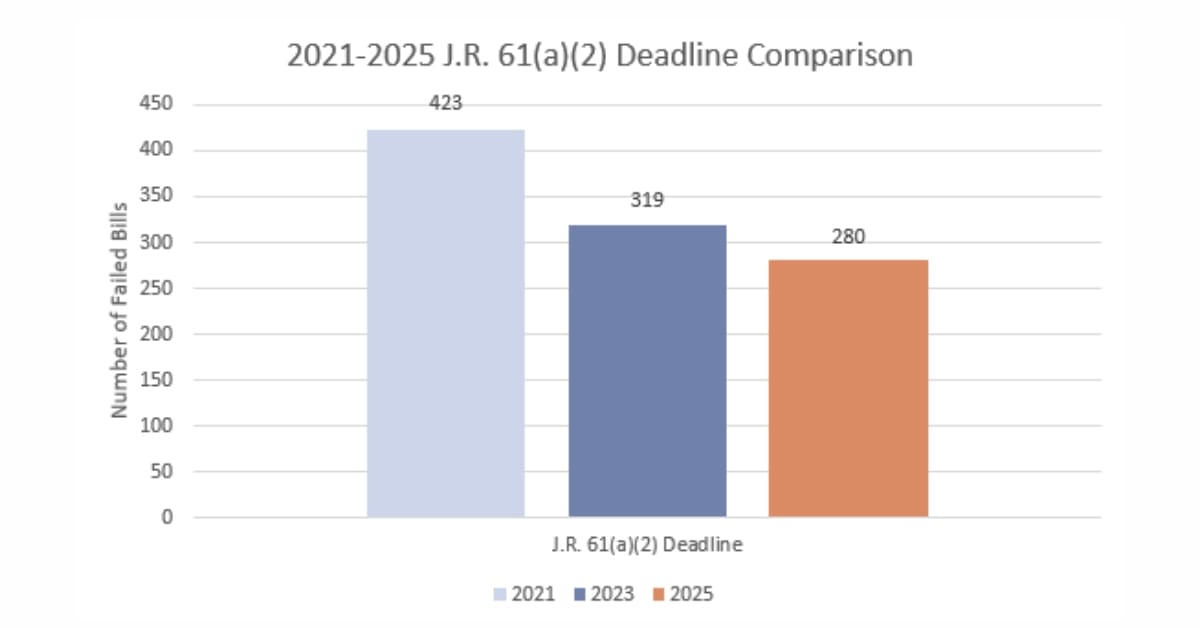Legislative Update: Past, Present, and Future Deadlines
Back to News
Following the spring recess in April, legislative business returned with a fervor ahead of several pending legislative deadlines in rapid succession. Legislative policy committees considered thousands of bills introduced this session, and now turn their focus from policy considerations to the fiscal impacts of pending legislation.
The first major deadline in May that begins the dash to the Appropriations Committee suspense hearings was last Friday, May 2. That was the final day for policy committees to hear and report bills with fiscal impacts to the Appropriations Committees of each house. Then, the Appropriations Committees have until Friday, May 23 to conduct their business and weigh the fiscal implications of hundreds of bills.
What about the Governor’s May Revision budget proposal?
Considerations of the fiscal impacts of legislation before the Appropriations Committees will occur concurrently with the release of the Governor’s 2025-26 May Revision budget proposal, which is expected to include a budget deficit of several billion dollars. The Administration is required to release that proposal for the 2025-26 fiscal year by Wednesday, May 14.
Nonfiscal Bills, Fiscal Bills and Appropriations — Oh my…
Nonfiscal bills — those without a financial impact on the state — are not required to undergo review in an Assembly or Senate fiscal committee as they progress through the legislative process. They generally adhere to later legislative calendar deadlines than fiscal bills. If a bill is determined to have a fiscal impact to the state as assessed by the Office of Legislative Counsel, the bill is deemed a “fiscal bill.” Bills are considered “fiscal bills” if they contain an appropriation of funds, require a state agency to spend money for any purpose, or result in a substantial loss of revenue to the state. These bills necessitate review in both fiscal and appropriate policy committees. The term “fiscal committees” refers to the Senate Appropriations Committee and the Assembly Appropriations Committee, as shorthand.
Upon approval by policy committees, nonfiscal bills proceed to the floor of that house [Assembly or Senate] for a vote of the full house. Fiscal bills, however, must first pass the fiscal committee of the respective house by a specified deadline before reaching the floor. This year’s deadline for policy committees to review legislation with fiscal impacts introduced in the house of origin was Friday, May 2. Policy committees have until Friday, May 9 (an extra week) to hear nonfiscal bills introduced in that house and report those bills to the floor.
Fiscal committees have only two weeks to hear and report fiscal bills to the floor, ending this year on Friday, May 23. Due to cost concerns, particularly during deficit years like this is expected to be, many bills are held in fiscal committees by being set aside in the “suspense file” and never taken up for a vote to pass out of the committee. Sometimes, an Appropriations committee significantly guts and/or amends bills to reduce cost impacts — often without the consent of the bill’s author.
What is a two-year bill?
2025 is the first year of a two-year legislative cycle. Bills introduced in 2025 have until January 31, 2026 to pass out of their “house of origin” (the house they were introduced in). Bills that do not pass out of their house of origin in 2025 or are stalled (for example, by being held in an Appropriations Committee because of cost concerns) are commonly referred to a “two-year bills” because they will carry over into the following year. Those bills must pass their house of origin by the end of January 2026.
Where can you learn more about CSAC’s legislative tracking?
CSAC’s new website includes a Member Legislative Resources page with links to bill tracking lists by policy area. Members may be prompted to log into the CSAC Member Portal to view the page. Additionally, members can contact the CSAC legislative affairs team with questions about specific policy areas or legislation.
*Image courtesy of Capitol Track.